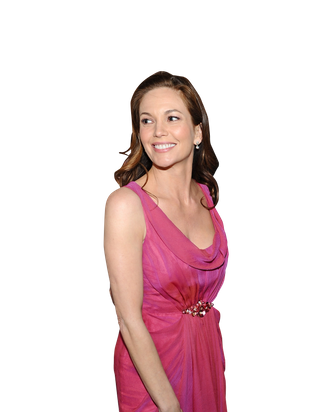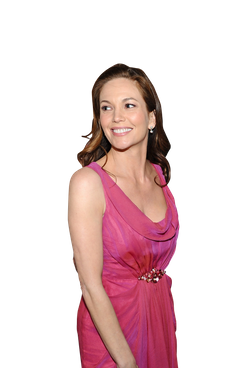

In 1973, PBS aired the first reality-television series, An American Family, which pitilessly showed seven months in the life of a Santa Barbara couple, Pat and Bill Loud, and their five children. Over twelve episodes — heavily edited, arguably past the point of fairness — the Louds’ marriage collapsed and their teenage son Lance came out. In Cinema Verite, HBO’s forthcoming film about the Louds’ very public moment, Diane Lane stars opposite Tim Robbins and James Gandolfini as the family matriarch. We spoke with Lane about meeting the Louds, her problem with reality TV, and why she’s especially excited to star in Zack Snyder’s Superman.
Did you meet the family as part of your research for the role?
I didn’t have any contact with them before we made the movie. I honestly didn’t want to be ingratiating; the last thing I wanted was to add to rather than subtract from their burden. But I certainly had all the resource material I could ever ask for, with the original twelve hours of documentary, which I watched several times, and Pat Loud’s autobiography — that was like a cheat sheet. But I just met them at the premiere, which was incredible. It was like meeting unicorns and mermaids. We have all been deifying these people. Getting Pat Loud to sign my copy of her book was like having Elvis sign your record.
Were you aware of the original documentary when it first came out?
No, I was only 8 years old. But I have reams of written commentary, research. I felt very well-armed. All that was left was to fill in was the vulnerability, the denial. Pat Loud had a flailing marriage, teenage kids, and a camera crew moving into her home. That sort of situation is unheard of.
What was Pat’s reaction to the movie? Does she approve of it?
She — and all of the family — had seen the film once before [the premiere]. They said they were so emotionally stricken that they really couldn’t cope the first time they saw it. So there was no feedback, and we all assumed they didn’t like it. But, in fact, they were just overwhelmed. Them coming to the premiere was them giving it their blessing. I am using that word; I’m not quoting them. But to me, it seemed that way, because they didn’t have to come.
Were you concerned that this film might open up old wounds for them?
Absolutely. We were definitely raising the Titanic with this. And it did open some old wounds, but it healed some, too. There is some vindication with this movie, because people can see the plight of the Louds with fresh eyes. Especially when we see where we have gotten to today, in terms of what we are referring to as “reality television,” which, in my opinion, is an oxymoron. You can’t have reality and television co-exist.
Do you feel that Pat Loud got addicted to the power that the exposure gave her, or do you think her aims were nobler than that, that she was doing a public service to other women in America by leaving her cheating husband?
The truth is she’d known about Bill’s infidelities for a long time. There are conflicting reports, of course, because everybody has their own point of view of history. But the fact that Pat and Bill had an uncomfortable past is true, and she wanted him to straighten up and fly right, and she was trying to manipulate his behavior. And what a good way to do it: shame him into good behavior with cameras in the house. But it backfired.
Do you think there was an element of humiliation at play, though? That Pat could put up with his infidelities when their life was private, but once a camera was pointed onto it, she couldn’t continue to let it happen?
The buck’s got to stop somewhere, and what’s fine for one person might not be fine for another. But if you do feel the burden of being in the position of being an example, it might compel you to do things you otherwise would not do. You put a camera on somebody and they are going to not want to look foolish, they are going to want to appear courageous, they are going to want to be their best selves.
Do you watch reality TV?
No, not at all. I’m not on my high horse — I really just don’t have the time. I will flick channels if I am in front of the TV. I will have shows that I watch, but not reality shows. There are too many channels and only so many minutes to live. And ever since Princess Diana and Dodi were being following by the paparazzi, before the tragic end of their lives, I decided I didn’t want to put any weight on that side of the scale in terms of my attention. Dodi was a friend of the family — I never met Diana — but when that happened, I just felt that it was the same thrust, this avid viewership, this insatiability and voyeurism. And it sort of goes the same way with the reality shows. I feel as though it does matter what we watch. I made this movie called Untraceable a while ago, and it was an attempt at a moral fable, about a killer with an agenda, with a moral point. The more people watch him [kill people over the Internet], the faster people get killed. He’s pointing the finger at society and saying that because of our base appetites, this is what is happening. It sounds silly, but there is something to it. I do think we are accountable for what we turn our eyes to.
You will be playing Martha Kent in the new Superman film. Are you looking forward to working with Zack Snyder?
Yes, that starts filming August, September. When Zack called me up, I had had no idea that he had directed Legend of the Guardian: The Owls of Ga’Hoole. I love that movie; it was a real guilty pleasure of mine. I saw it right after I had been on a promotional whirlwind tour for Secretariat, and it was perfect for me, because I needed a film like that. So once I realized that, in hindsight, after saying yes to Superman, I was like, Yeeeah. Then I saw Sucker Punch, and that was OTT — it was wild.
Do you have anything else in the pipeline?
I am traveling to Africa soon, to make a documentary for PBS. Which is nicely cyclical — life imitates art, imitates life, imitates art, imitates life.




